Disclosure: Meeple Mountain received a free copy of this product in exchange for an honest, unbiased review. This review is not intended to be an endorsement.
I’m a pretty big fan of the games Challengers! and Challengers! Beach Cup, games that have often been referred to as “War: The Deckbuilding Game” by friends in my game circles. This is fair—players compete in a game of capture the flag against a single opponent (with as many as four minigames taking place at the same time) by slowly revealing cards from their decks in order to take control of the flag in an attempt to outlast a rival.
In a fun attempt to simulate a real-world sports playoff structure, the two players with the most points at the end of Challengers! go head-to-head to play one final match to determine the game’s overall winner. By the end, the player with the winning deck has usually been quite strategic in building a deck that has a number of card synergies that helped the player win.
After three plays of the new game Golden Cup (2024, Cranio Creations), it is clear that Challengers! had at least a moderate influence on this new design. Players manage a team of shoddy players competing to win the “Fantasphere”, a sport that looks like it might be a cross between soccer, baseball, and volleyball (based on the shape of the oversized ball pictured on the box cover). Over six rounds, players will hire “Champions” to slowly upgrade their roster, and these Champions will sit in one of four slots on the player mat to provide powers that will hopefully help the team win.
Separately—and randomly, based on the game’s match structure—players have to add action tokens representing each team’s ability to attack or defend during a match. These are not directly aligned to the Champions but greatly affect the game’s major tension point: the ability to score.
This makes Golden Cup an interesting proposition—at first blush, it looks like a dice-driven version of Challengers!. But the action tokens led to something different in my plays: a “double random” game that nearly eliminates any dreams of strategic play where I literally didn’t score a goal for any of the six rounds in my first multiplayer game. That’s because the game is random in two ways: the way tokens are drawn and the way players attempt to score.
Golden Cup was co-designed by Gabriele Bubola and Simone Luciani—the latter of whom may be the greatest creator of Euro-style strategy games designs currently working in tabletop today. This made the design of Golden Cup even stranger—Golden Cup is essentially a dice-chucker, which is a warning for anyone thinking that the genius behind games such as Grand Austria Hotel and Barrage is going for a medium-weight match-up game.
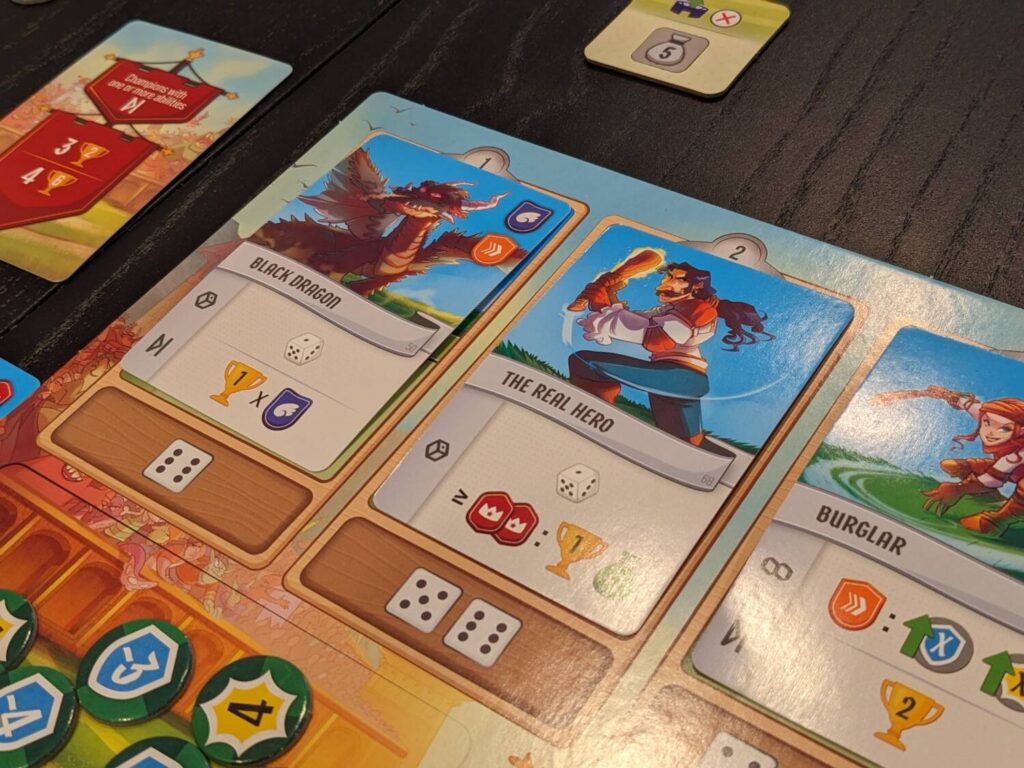
Wait, You Didn’t Score Once?
Golden Cup is a 1-6 player bag building head-to-head matchup sports game featuring victory points known as Fame. At the end of six rounds, the two players with the most Fame take their team into a final matchup to win the Golden Cup, with the winner of that round winning the game overall.
Each round has three phases. In the Round Setup phase, players keep their current hand of three Champion cards, or discard any number of them and draw new cards up to their hand limit from the deck of cards. These cards must match the player’s current “Scout” level—Bronze, Silver, or Gold. Like the game Challengers!, Golden Cup’s cards match up directly with the levels of the A, B, and C decks in Challengers!. This means that Bronze cards are average or worse, Silver cards are a major step up from the Bronze cards, and Gold cards are often so ridiculous you’ll feel like the game is broken (in a great way), especially if you are playing against a player with Bronze cards.
My findings, without studying each and every card in the game—playing with Bronze cards will ensure a random experience, Silver helps mitigate much of the randomness in the design, and Gold cards sometimes have specific powers that help upend an opponent’s playstyle or guaranteed end-game points. But it takes a little while to get to those Gold cards unless players are intentional in upgrading other abilities.
As mentioned above, the Champion cards that are added to a player’s roster during the next phase, Purchase Campaign, simply get added to a player’s starting spots. But, they don’t really play in the way you are expecting. Instead, the powers of a Champion card are only triggered if that specific Champion is called upon to score during the game.
This is where Golden Cup forges its own path from games such as Challengers!—but, not in a good way. That’s because I was surprised how often I purchased new Champion cards only to never trigger their in-game abilities because the players never, well, played.
During the Purchase Campaign step, a few other things are possible. A player can boost their available cash for a round by upgrading their stadium (shades of Eleven: Football Manager Board Game came to mind here). One could choose to draft better cards by upgrading their Scout ability, or they could choose to buy or upgrade existing action tokens. Action tokens range from defensive tokens that are valued from negative 1-4 (defense usually forces a shooting attacker to use a player in a slot with lower scoring odds), to attack tokens that range from a value of positive 1-4.
It became clear early on that winning matches by scoring lots of points is the only real way to ensure you have enough points to qualify for the final match, so most players in my groups focused on buying attack tokens. There’s almost no reason to have a majority of defense tokens—you can only take home the most Fame by both winning (by scoring) and winning by a large margin, to score bonus Fame during a match.
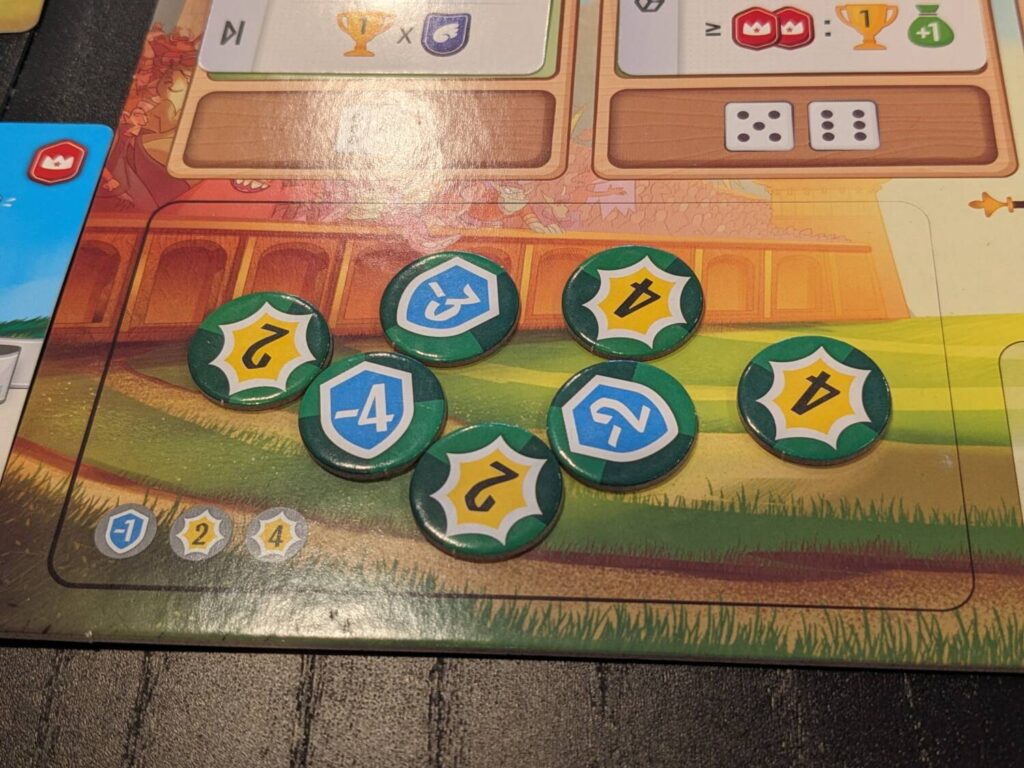
The Match Begins
Executing the round’s final phase, Matches, is very simple. Like Challengers!, each player is given a tile that shows them their matchups before the game begins, with players assigned an opponent for their six matches across three venues—blue, orange, or purple. The two players at each venue dump all their action tokens into a draw bag matching the color of the stadium along with four break tokens which are used to potentially shorten the number of tokens that will be drawn each match.
The stadiums are really just a track with a dial that goes from a start space all the way to the number 6, with blank spaces for tokens scattered throughout. The match will end when enough tokens are drawn to cover the spaces up through a limit of each match number. For example, the first match ends when tokens are drawn and fill the start space, a handful of empty spaces, then the number 1. Each successive match is a little longer than the last.
One player is responsible for drawing all the tokens. When breaks and defensive tokens are drawn, nothing happens immediately. When attack tokens are drawn, they are measured against opposing defense tokens and the difference is subtracted. So, if there’s a red -3 token on the dial and a blue +4 token is drawn, a player looks at the Champion in the #1 slot on their player mat (4-3=1).
Then, they roll at least one die, boosted if the Champion has any powers that augment their scoring ability. The #1 slot is the “worst” player, so they have to roll a 6 to score (dice in Golden Cup are standard six-sided dice). If that blue +4 token had been drawn when red had no defensive tokens on the board, they would have shot with their #4 Champion, who scores when rolling a three or higher.
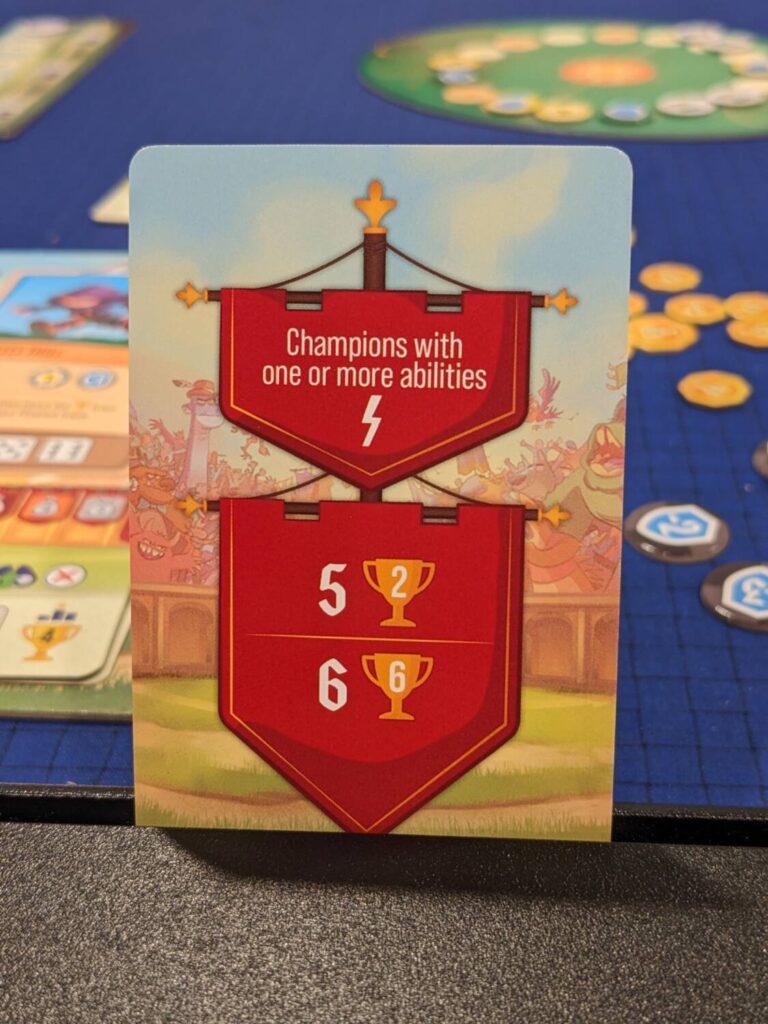
In an intriguing twist, it does not matter what card you have in any of the Champion slots…they always use the same die result to determine if they have scored. That means that any card in the #1 slot always requires a 6 to score. And a lot of the Champion cards don’t provide match boosts, so it doesn’t really matter which slot they occupy.
Remember that thing I mentioned earlier…”double random”? Here’s what that means in context with the matches.
A match begins, and there are decent odds that one of your tokens will be pulled from the draw bag, higher if you’ve found a way to buy more tokens than your opponent for a given round. But it’s not a guarantee that any of your tokens will be drawn, which did happen in one of my matches across the three plays and 18 total matches (so, admittedly this will be rare). In two of my 18 matches across three games, I only had one token drawn. That meant there was a 17% frequency with which one or none of my tokens were even drawn during a match. This meant I didn’t play or do anything of value during those matches.
Even when a token is drawn, you have to roll a die to see if you score. The chances are decent that you will not score during a match of Golden Cup even when your tokens are drawn, and many of the matches (both my own, and opponent matches) ended 0-0 or 1-0. Give Golden Cup this much—like real soccer matches, scores might be very, very low.
But that means the token draw—your chance to even play in a match!—is random. Then you have to roll a die, and a random result determines when you score.
Does this sound like fun to you?
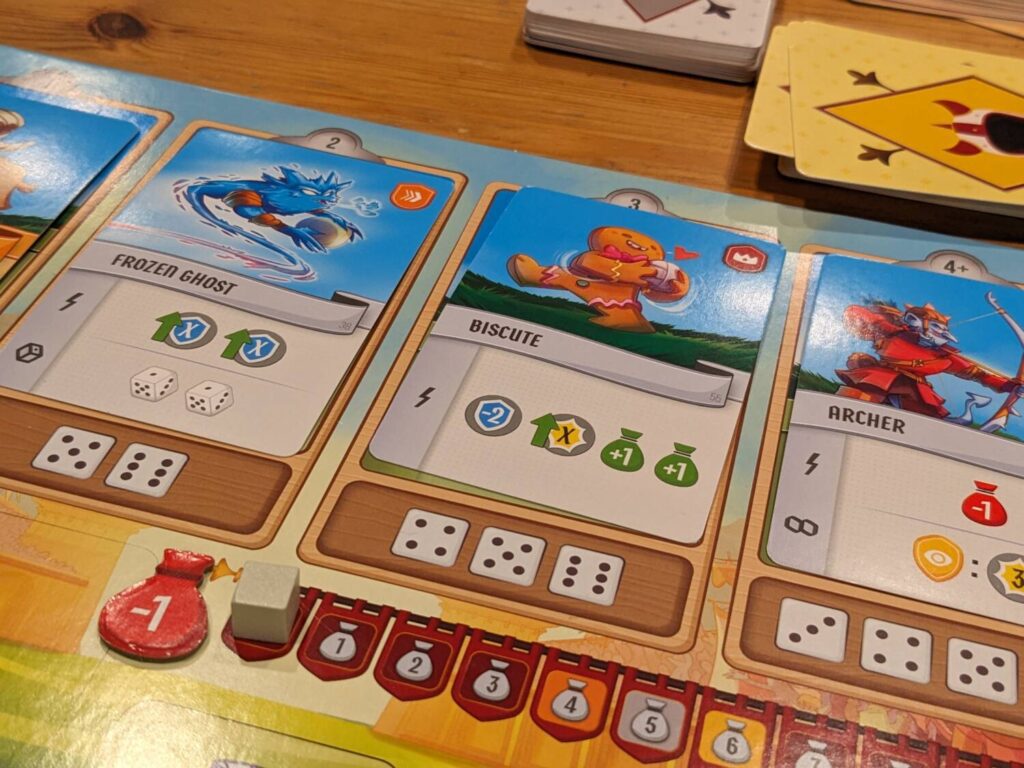
Oh Boy
Golden Cup features Challengers!-adjacent gameplay but at a strange cost: it’s not nearly as interactive as I was hoping for, and certainly not as engaging as the source material. As a big fan of Challengers!, this is a disappointment.
But the bigger issue for players who provided feedback about Golden Cup was that everyone agreed that it was more of a chore than a fun exercise.
Drawing tokens from the bag is just boring! (It doesn’t help that most of my friends are bigger folks who had a hard time getting their hands into and out of the small-ish openings of the draw bags. This won’t be a problem for children, but the adults struggled to pull tokens out. I began using my larger BGG-branded draw bags as a substitute.) It’s always fun to roll dice, but I was surprised how often players did not score, particularly when using Champions that did not grant the use of one or two extra dice during matches.
It was hard to plan which Champions would even get to shoot during a match, and because Champion cards are locked into each slot before a match, you can’t pivot later. The game pushes players to buy Champions, because empty slots generate -1 Fame if those pre-printed characters score (thematically, no one wants to watch the scrubs play Fantasphere, which I thought was a cute touch).
Another strange design choice: in solo and two-player games, if one player is ever six or more Fame ahead of their opponent—counting only the Fame points they have publicly, in hand—they automatically win the game. Challengers! has the same rule, roughly, and in that game, this is OK because there are no end-game scoring conditions.
But Golden Cup gives each player a private goal card that scores at the end of the game. In my solo play, I was behind by seven Fame at the end of the fifth round, so I would have technically lost. But I had a bunch of points tied to my private goal and two of my Champions that scored for set collection purposes…so even though I was set up to win (and I did, by 12 points, when factoring in those end-game points mixed with the points I earned from the sixth round that I decided to play out anyway), I would have technically lost.
You can’t have conditions like this in a game with end-game scoring, right? Oh boy.
Because the entire game feels random, I leaned into that for my final play and just stuck with a mix of Bronze and Silver-level Champions and didn’t bother to upgrade my Stadium. I had a Champion in my first slot that added two dice to my attack roll, so I kept them there for the entire match and scored about half the time the #1 slot became eligible to shoot.
As a random dice-chucking activity, Golden Cup isn’t bad, but with Luciani at the wheel, I was hoping for so much more. This is not a strategy game, but it is a decent fit for families and the six-player accommodation gives the game a lot of flexibility. In games with three or five players, an automa is used as competition, just like Challengers!. So, if you don’t have an even number of players, Golden Cup is still easy to table. Golden Cup lists a playtime of one hour on the box, but even my four-player game only took about 45 minutes and the three-player game took less than 30 minutes to wrap up.
Challengers! remains one of the best options for gaming experiences like Golden Cup, so grab a copy of that if you are looking to scratch the head-to-head battler itch with a more deterministic series of options. Golden Cup was a disappointment but Luciani’s name on the box forced my hand, so I’m glad I found out for myself!


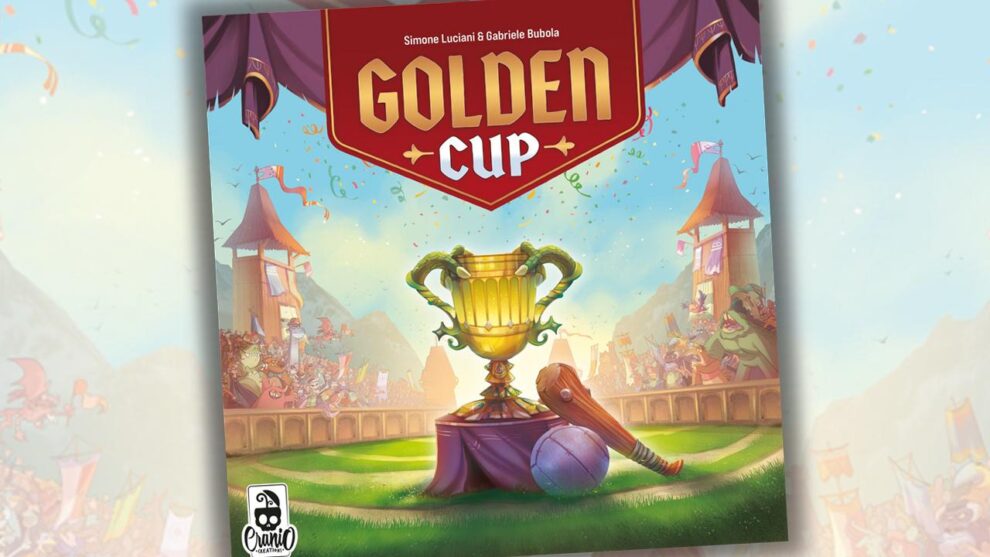
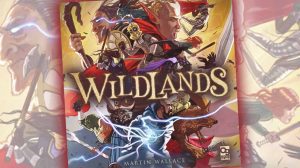
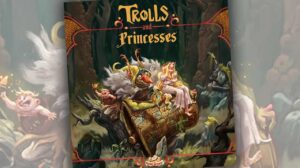
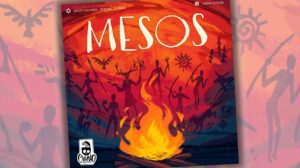


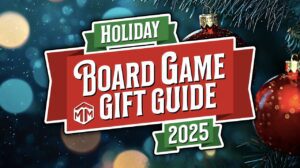


It does sound pretty boring. Is there even one sports board game that is good?
I’m not a fan of sports in general, but I’ve heard good things about Baseball Highlights 2045. In fact we’ve got a review of Spring Training, the solo version of the game:
https://www.meeplemountain.com/reviews/baseball-highlights-2045-spring-training/
huh, let´s see